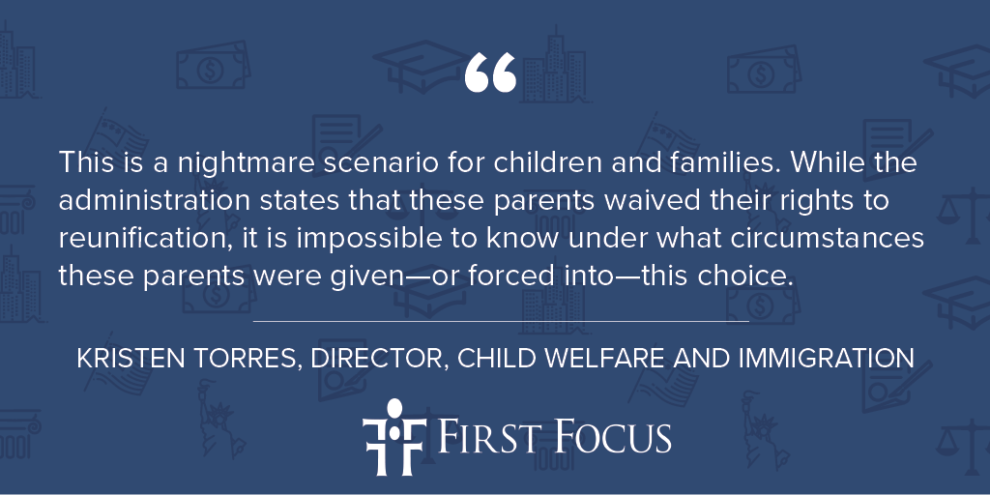
While family reunification efforts due to the Trump administration’s family separation policy are underway, more than one thousand families still face significant hurdles to being reunited with their children.
In June, U.S. District Judge Dana Sabraw ordered that all children separated from their parents and are eligible for reunification should be reunited by Thursday, July 26.
Despite the urgency of the order, government agencies are struggling to reunite families in a timely manner.
As of Friday, July 20 there were approximately 1,900 children waiting reunification. While U.S. Immigration and Customs Enforcement (ICE) has cleared more than 1,000 parents for reunification with their children, their families face additional hurdles to reunification—one such barrier asks them to present documents to the Office of Refugee Resettlement (ORR) that were taken from them while they were in the custody of Customs and Border Patrol.
In many cases parents must also travel long distances to reach their child, and some parents were asked to pay for the transportation costs. The American Civil Liberties Union (ACLU) argued this is a concept that doesn’t make any sense for parents who were victims of this cruel practice. In agreement, Judge Sabraw ordered the Trump administration to pay for all costs of reuniting families. Additionally, documents related to the court-ordered reunifications show that the Trump administration stated that 463 parents are no longer in the U.S.
This is a nightmare scenario for children and families. While the administration states that these parents waived their rights to reunification, it is impossible to know under what circumstances these parents were given—or forced into—this choice. In one report, attorneys spoke with mothers who were told if they continued to fight for asylum they would continue to be detained and separated from their children. One mother stated that more than once an ICE agent pressured her by asking, “Don’t you want to see your daughter?” For families fleeing the Northern Triangle, it is cruel to expect them to choose between taking their children back to the dangerous conditions from which they escaped or giving up their right to ever see their children again.
The reunification of these families is only the beginning of another arduous journey, as more than 900 parents are facing deportation orders. Children and families who have been traumatized by the horrific practice of being forcibly separated will experience yet another traumatizing event.
The videos of children being reunited with their parents show a mix of emotions as they see each other for the first time in months. Parents are reportedly seeing significant changes in their child’s demeanor due to the trauma that was inflicted by the separation and prolonged detention. According to Dylan Gee, assistant professor of psychology at Yale University, traumatizing experiences that happen in early childhood have lasting effects. Forcibly separating a child from their parent produces toxic stress that will have profound psychological and neurobiological consequences.
First Focus will be monitoring this issue as the deadline closes–stay tuned for the latest policy and status updates.